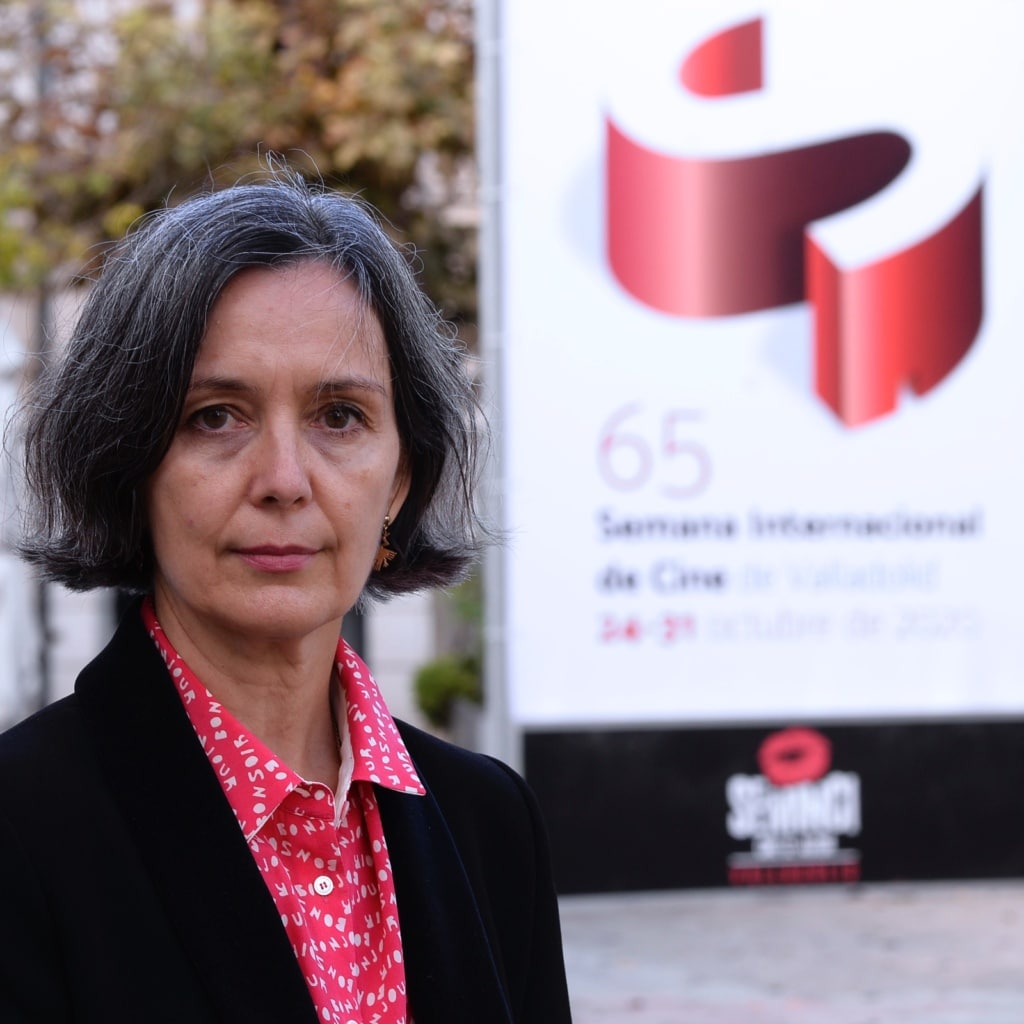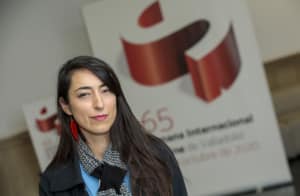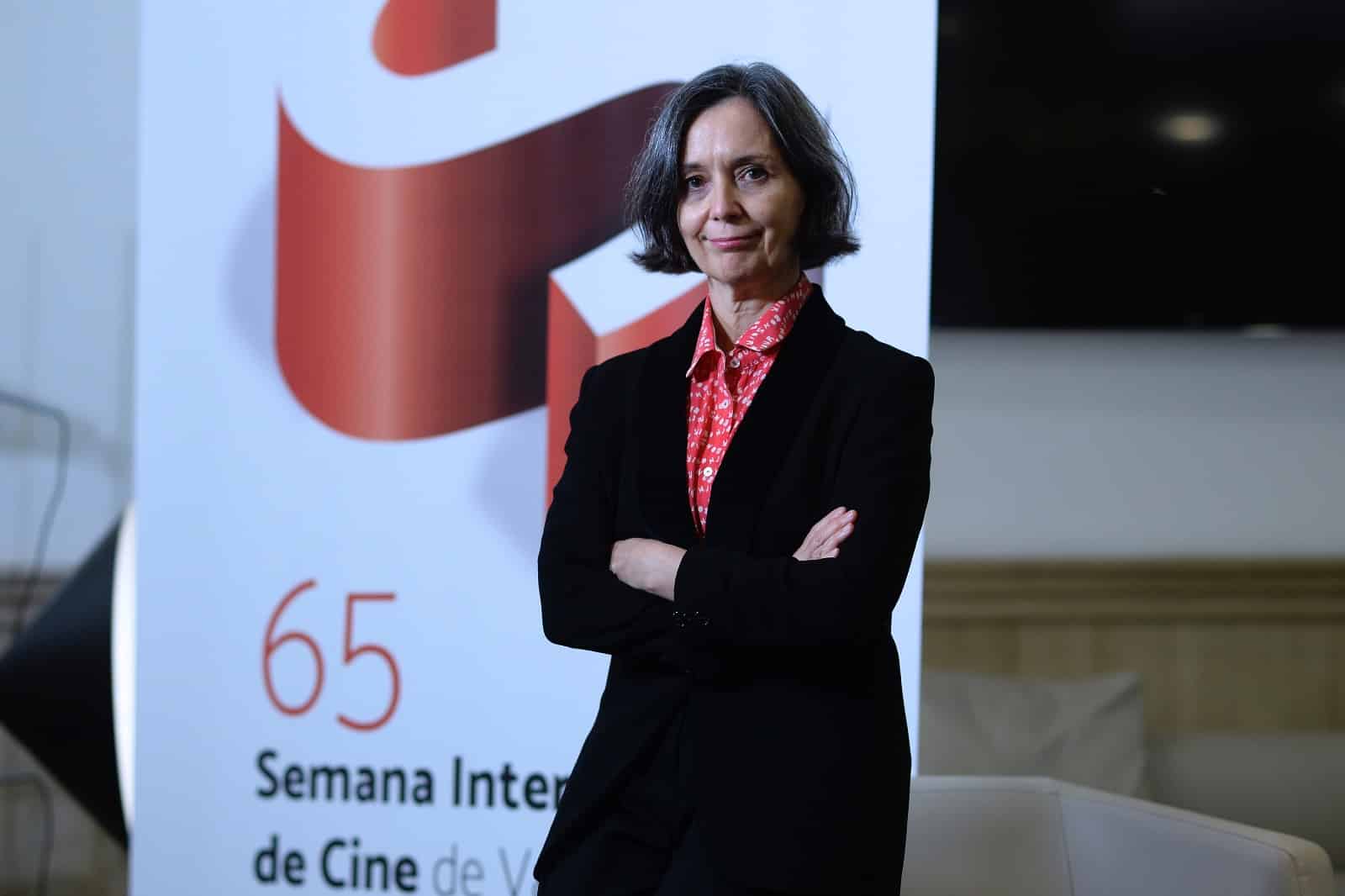
10/26/2020.- Arantxa Aguirre presented this Monday, October 26, her feature film Zurbarán and His 12 Sons, screening in the festival section Time of History. The film probes into the life and work of the artist and delves into the many peculiarities of his series of paintings known as Jacob and his twelve sons.
The director pointed out that this story stemmed from a commission by the Centro de Estudios Europa Hispánica, and that for her this has been one of the most beautiful gifts in her life. She also explained that the filmmaking process was very long and problem-riddled , including the outbreak of the pandemic, but that it was worth the effort because it enabled her to enter “a world that is very rich camera-wise.”
Arantxa also wanted to express her support and gratitude for the film’s crew, some of whose members were among the audience: “we are aware that screening films theatrically is becoming ever more odd, but we worked as if we weren’t, with the same enthusiasm and the same faith as of old “.
During the presentation, the filmmaker, who is taking part in Seminci for the fourth time, took the opportunity to voice a message of encouragement in the face of worldwide troubled times, specifically in the arena the cinema. “If you are here today despite all that’s going on out there, it is because cinema matters,” she said before adding that “in times of crisis, in order to regain strength, you have to go back to the original classics”, which she did by quoting a phrase from Don Quixote to which she particularly related as a filmmaker: “The enchanters may be able to rob me of good fortune, but of fortitude and courage they cannot.”
Short film screening

On the other hand, the Franco-Portuguese director Ana María Gomes presented her short film Bustarenga, in which a woman from this small Portuguese mountain village tells the story of her search for Prince Charming. Despite this message not sounding particularly modern, the director claimed that her intention had been to show that the women in this area “preserve their traditional culture while at the same time possessing a very strong character.”



























![Logo Foro Cultural de Austria Madrid[1]](https://www.seminci.com/wp-content/uploads/2024/09/Logo-Foro-Cultural-de-Austria-Madrid1-300x76.jpg)








